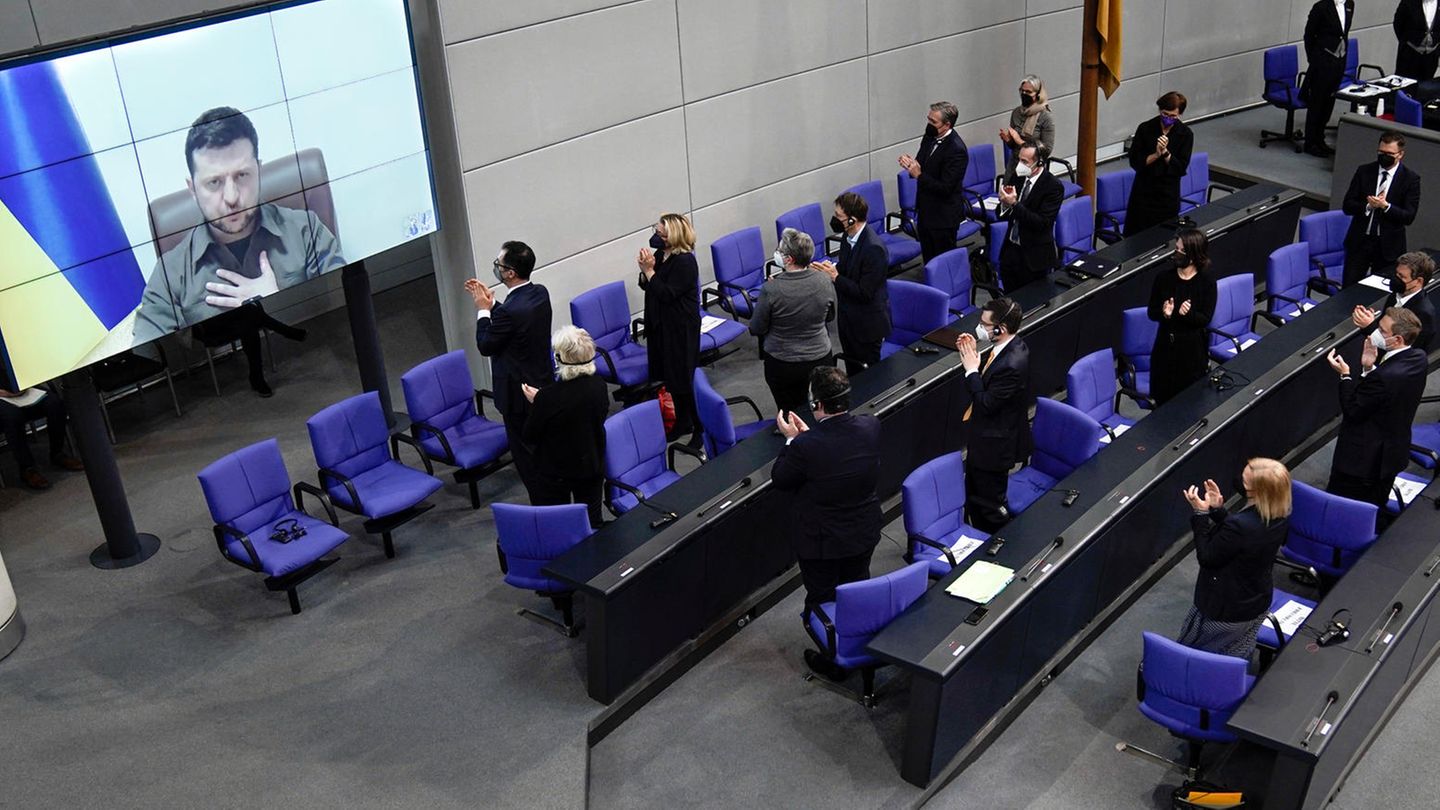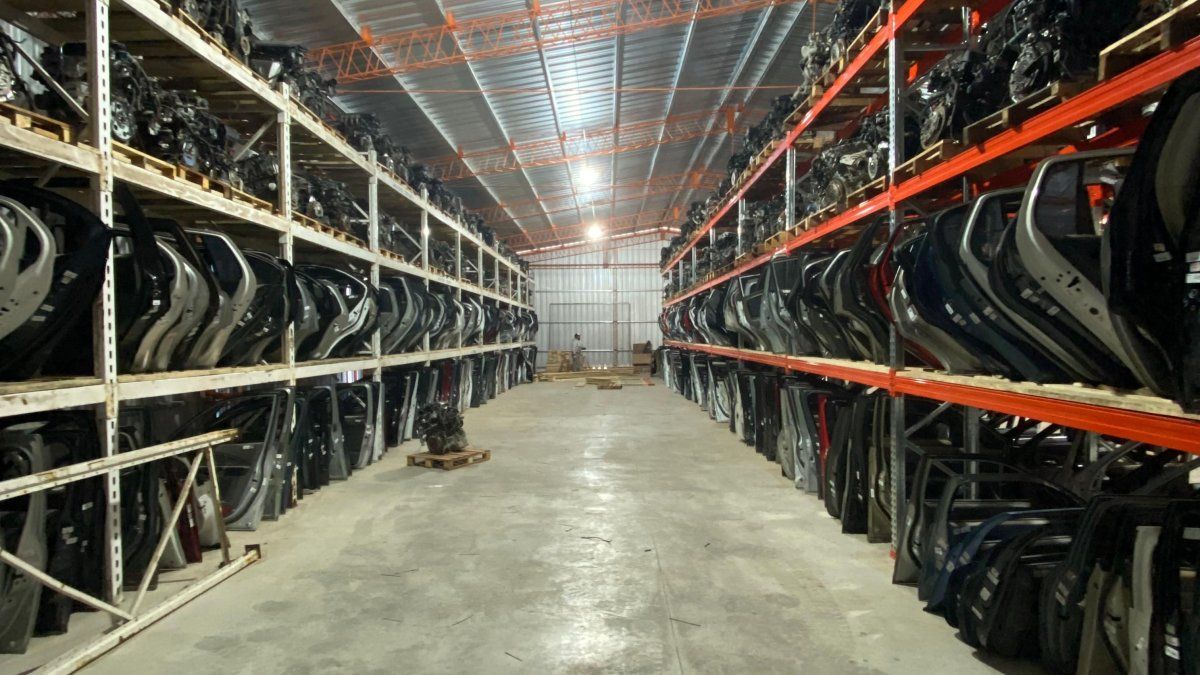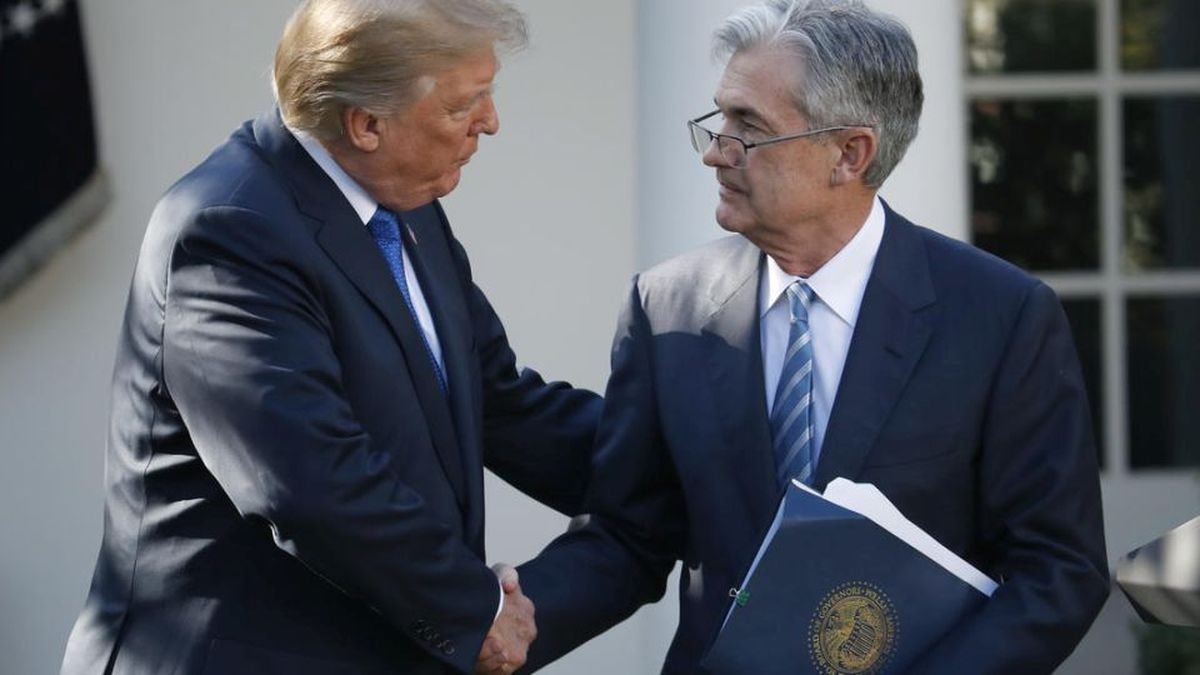Olaf Scholz and Annalena Baerbock can imagine providing Ukraine with security guarantees. Only: What does that mean? Would Germany be prepared to take up arms if necessary? The USA and France are noticeably tight-lipped.
For decades, the most effective “guarantees of security” had names like “Pershing,” “Tomahawk,” or even “Pioneer.” They were cruise missiles capable of delivering nuclear bombs to almost any point in enemy territory. Fortunately, the rockets were never used. The idea of nuclear deterrence, while highly dangerous, had worked. And their price. The arms race ruined the Soviet Union and then tore it apart. Parts of the ex-empire became independent but continued to sit on the Cold War nuclear weapons legacy. First of all Ukraine.
Ukraine 1994: borders against warheads
Moscow had stationed more than 3,000 nuclear missile warheads and tactical nuclear bombs in the western part of the giant empire. With its independence, Ukraine had suddenly become one of the largest nuclear powers in the world. But after the collapse of the Eastern Bloc, nobody felt like confrontation and nuclear weapons anymore, on the contrary. In 1994 the USA, Great Britain and Russia negotiated the “Budapest Memorandum” with Ukraine, Belarus and Kazakhstan. Essentially, it provided for the ex-Soviet states to hand over their nuclear bombs to Russia in exchange for a guarantee of their territorial integrity. Everyone adhered to this until 2014, when Russia violated the treaty in which it annexed the Ukrainian peninsula of Crimea.
The Crimean crisis was followed by the unrest in eastern Ukraine and then the de facto war there. Since the end of February 2022, the Russian military has been openly attacking its neighbor – even though the USA and Great Britain issued security guarantees in favor of the country in 1994, as did China and France in a separate agreement. This brief foray into the world of international legal agreements shows that the status of Ukraine has actually long since been regulated and protected in a binding manner – in contrast to the way Kremlin boss Vladimir Putin in particular is trying to sell it to the (his) public.
War over “security guarantees”
Bizarrely, it was Russia that started the war in Ukraine with its insistence on security guarantees. The country, according to the Kremlin, felt threatened by the West in general and by NATO in particular, it said long before the invasion began. The background to this is the goal of joining NATO expressed in the Ukrainian constitution. However, the alliance has no intention of absorbing Ukraine in the foreseeable future, and the last round of NATO’s eastward expansion was 18 years ago. While Vladimir Putin once flirted with Russia joining NATO, he now describes the expansion as a “betrayal” of old agreements – which never existed, at least never in a binding manner or even in writing.
Moscow gives “denazification and demilitarization” as the official justification for Russia’s invasion of Ukraine. The former is, of course, outrageous nonsense, with which Russia wants to tie in with its heroic role in the liberation of Germany in World War II. The latter, on the other hand, would be logical, at least according to the Kremlin’s own threat logic. And even if the Russian army manages to destroy Ukrainian military bases or fuel depots again and again, the majority of the invasion hits the civilian population. Most importantly, the “special operation,” as the war is called in Russia, is either poorly planned or poorly implemented. In any case, anything but a success, which could result in a terrible conflict of attrition for precisely that reason.
Russia speaks of “long work”
Even at the green table, the conflicting parties are preparing for “quite a long time work,” as Kremlin spokesman Dmitry Peskov said. In the negotiations, such as those recently held in Istanbul, progress has been minimal, if at all. In a working paper, Ukraine has now declared its willingness to refrain from joining NATO and adopt neutral status – while granting security guarantees from third countries, including the USA. Germany is also ready for this, said Foreign Minister Annalena Baerbock. “If guarantees are needed, then Germany will also be there and give guarantees,” said the Greens politician at “Maischberger”. According to the Federal Press Office, Chancellor Olaf Scholz (SPD) made similar statements to the Ukrainian President.
But the federal government does not want to be more specific. Berlin is sticking to the line of not wanting to become “a military actor in this war,” as government spokesman Steffen Hebestreit said. He is alluding to the tricky point of security guarantees: What price would the guarantor powers be willing to pay in order to punish violations? In the Budapest memorandum, for example, there is very soft talk about economic sanctions, involvement of the UN Security Council and “rapid consultations”. Given Russia’s brutal aggression against Ukraine, this kind of support for the government in Kyiv may not be enough. Volodymyr Zelenskyi has repeatedly called on the West to set up and monitor a no-fly zone. But that would mean having to use force of arms against Russian planes and missiles if necessary. In other words, to wage war with Russia.
Tight-lipped: USA and France
So far, however, neither NATO nor any other state sympathetic to Ukraine are willing to do so. This is probably one of the reasons why the reaction in Washington and Paris, for example, was rather tight-lipped. The French government is said to first want to understand what exactly Ukraine means by security guarantees. The White House is even more reticent: Nothing definite can be said on the subject at the moment.
Swell: DPA, AFP, “”,
Source: Stern
David William is a talented author who has made a name for himself in the world of writing. He is a professional author who writes on a wide range of topics, from general interest to opinion news. David is currently working as a writer at 24 hours worlds where he brings his unique perspective and in-depth research to his articles, making them both informative and engaging.




